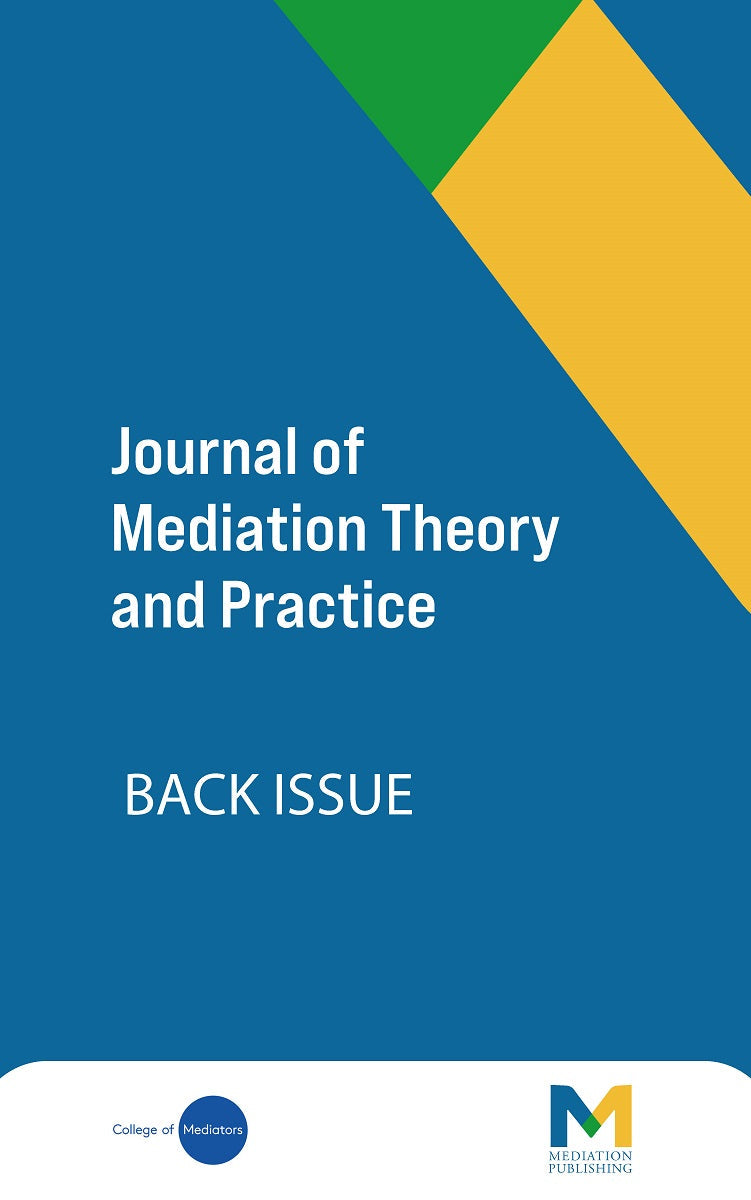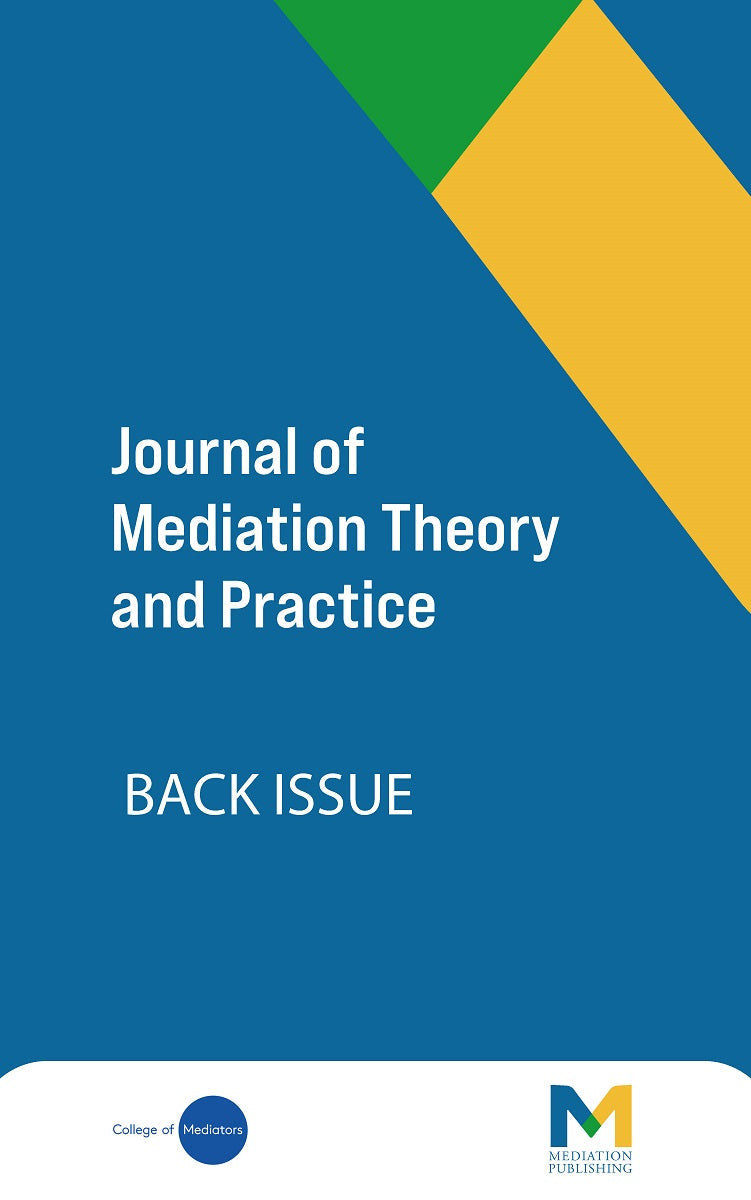Mediation Publishing
Journal of Mediation Theory and Practice Back Issues: 2017-1
Journal of Mediation Theory and Practice Back Issues: 2017-1
Couldn't load pickup availability
The back issue(s) for the year above for the Journal - Mediation Theory and Practice.
These issues were published by Equinox Publishing and will be despatched promptly after order, sometimes separately to other items you might order.
Individual articles are also available for purchase by download separately through the title links.
Contents for 2017-1
Research Article: The gatekeepers: The role of lawyers in the New Zealand commercial mediation market. Grant Morris, Victoria University of Wellington. Mediation is one form of dispute resolution used in resolving commercial disputes in New Zealand. Lawyers play a key role as gatekeepers to commercial mediation. This article explores the role that these gatekeepers are playing in the New Zealand private commercial mediation market. The findings are based on a survey and interviews carried out in late 2015 and early 2016. Prior to this study there was no comprehensive information on the attitude of New Zealand commercial lawyers to mediation. The evidence reported in this article suggests that lawyers are very aware of commercial mediation, and support it, but largely on their own terms. They are not undermining it. In fact, lawyers believe they are contributing positively to the mediation process. Clients have a more limited knowledge of mediation but usually follow their lawyer’s recommendations. Thus lawyers play a key role as gatekeepers to commercial mediation. The main reason lawyers recommend mediation is cost (i.e. it is cheaper than litigation). Lawyers prefer legally trained mediators with experience and a good reputation. Lawyers report high mediation settlement rates and high overall quality of mediations. Overall, the ‘gatekeepers’ are generally happy with the standard of commercial mediation in New Zealand. However, mediation exists to serve the clients, not the gatekeepers. The views of actual users are necessary to complete the picture of the New Zealand commercial mediation market.
Mediation through an intercultural communication lens by Siobhan Brownlie, University of Manchester. The article examines intercultural communication theory for the purpose of considering to what extent this theory may be useful to mediation practitioners and researchers. Early theory associated with Edward T. Hall and Geert Hofstede, which posits cultural differences associated with national groups, has been very influential in intercultural training, including training for mediators. A second area of theorisation is prescriptive. This includes two very different but related approaches: theorisation about intercultural competence, and social justice approaches. The uses and drawbacks of Hofstedian and prescriptive approaches for mediators are considered. Two further intercultural communication theories are explored. ‘Small culture’, as theorized by Adrian Holliday, is about the developing norms and practices in a possibly ephemeral group. Intercultural discursive practice, of which a major exponent is Zhu Hua, comprises two key areas: examining how participants in an interaction ascribe cultural categories to one another, and how they negotiate cultural matters. It is proposed that ‘small culture’ and intercultural discursive approaches could be productive for culture-focused mediation researchers as well as useful for trainers and practitioners.
Shipping & Returns
Shipping & Returns
We ship worldwide.


